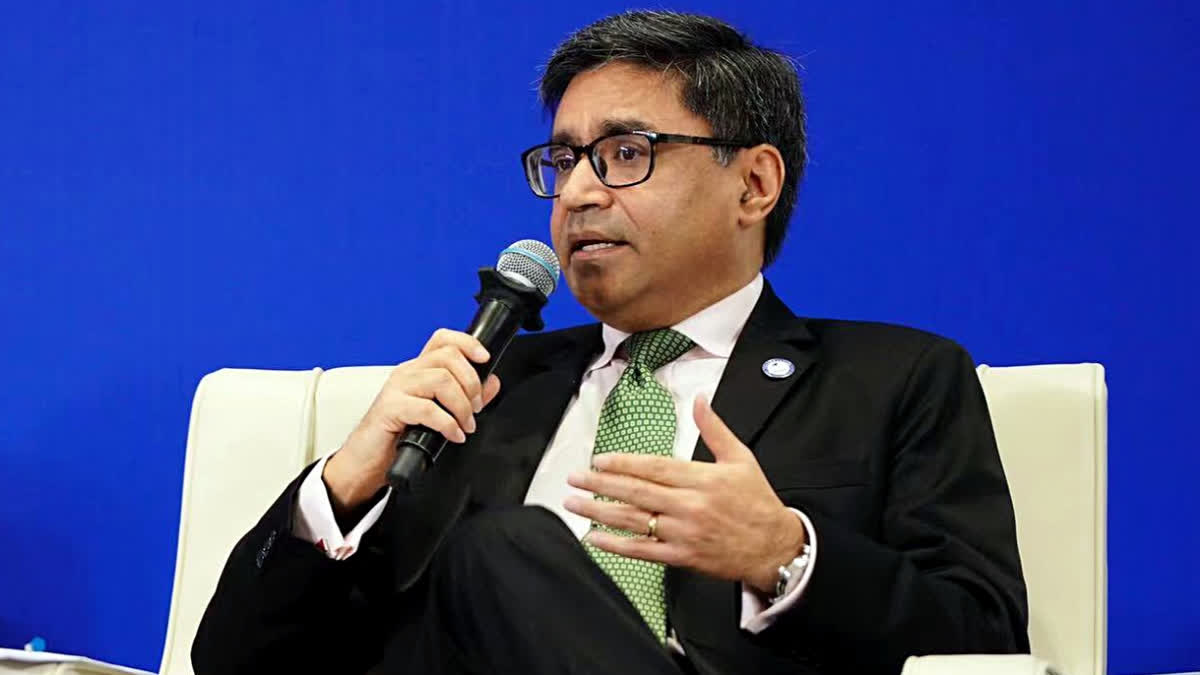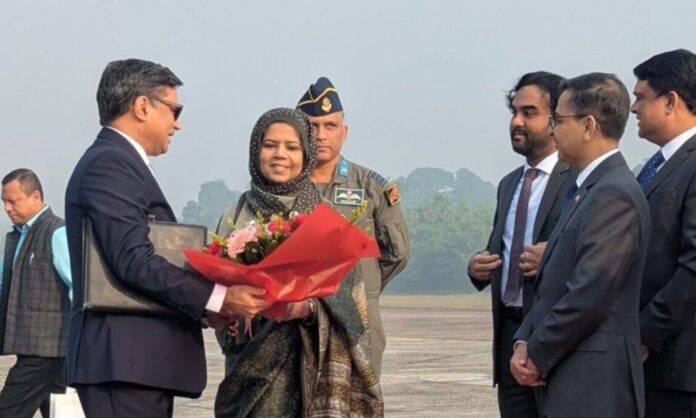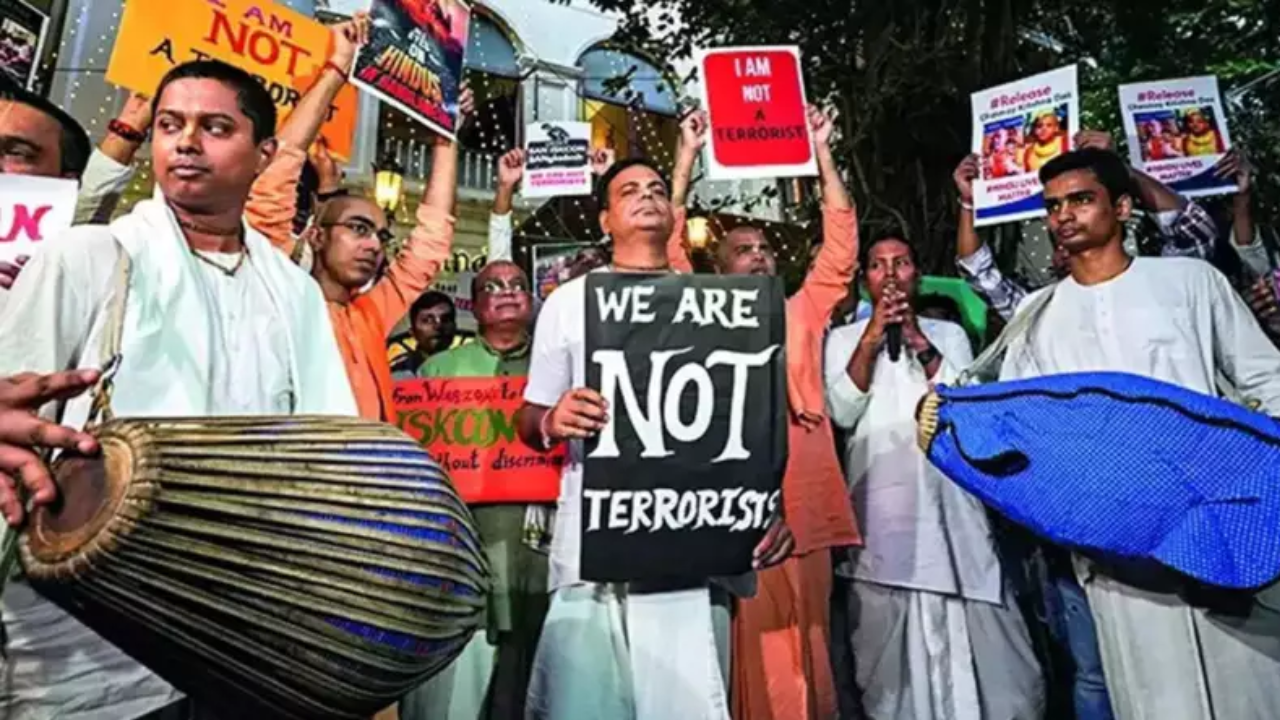India’s Foreign Secretary Vikram Misri landed in Dhaka on Monday morning for high-level discussions with Bangladesh’s interim government, led by Muhammad Yunus. This visit follows escalating incidents of violence against minorities in Bangladesh and the controversial arrest of spiritual leader Chinmoy Krishna Das.
Diplomatic Dialogue Through FOC
The Foreign Secretary’s visit is part of the established Foreign Office Consultation (FOC) mechanism aimed at strengthening ties between the two nations. Both delegations are expected to address critical issues, including trade relations, security, and minority safety.
Bangladesh’s Chief Advisor’s Press Secretary, Shafiqul Alam, confirmed that talks will cover “mutual interests” between India and Bangladesh. This is the first such interaction since the Yunus-led administration assumed office.

Rising Tensions Amid Attacks
The visit comes amid increasing attacks on minorities in Bangladesh. On December 6, the Mahabhagya Lakshminarayan Mandir in Dhor village, just north of Dhaka, was reportedly set on fire.
Babul Ghosh, the temple supervisor, stated that miscreants poured petrol on the idols before fleeing. He added that the perpetrators had motives beyond vandalism, hinting at deeper issues within the community. A formal complaint has been lodged against unidentified individuals.
Such incidents have sparked outrage, highlighting the plight of Hindu minorities in the region.
Arrest Of Chinmoy Krishna Das
Spiritual leader Chinmoy Krishna Das remains under arrest on sedition charges. Accusations stem from an October 31 rally during which Das allegedly disrespected Bangladesh’s national flag. He was detained on November 25, and his trial is set to continue in January 2025.
India has pressed the interim government to ensure a fair trial and protect Das’s legal rights. This case has drawn widespread attention, further straining bilateral relations.
/newsdrum-in/media/media_files/2024/12/09/8AXE4BfBcIrzRmSGX5vU.jpg)
India’s Call For Accountability
India has voiced its concerns regarding minority safety in Bangladesh. Officials reiterated the importance of timely action against perpetrators of violence and stronger measures to protect vulnerable communities.
An Indian official stated, “The safety of minorities in neighboring countries remains a priority for us. We expect proactive steps from the Bangladeshi administration to address these incidents.”
Political Pressures On The Interim Government
The interim government led by Muhammad Yunus has faced criticism for its perceived inability to curb violence against minorities. While pledging investigations into these incidents, the administration has yet to implement concrete measures.
Observers have pointed out systemic flaws and political influences as significant barriers to progress. The Yunus government’s response will likely shape international perceptions of its effectiveness.
Key Agenda Points For The Talks
During this Foreign Office Consultation, both nations are expected to focus on:
- Enhancing economic and trade relations.
- Addressing cross-border security concerns.
- Strengthening mechanisms to protect minority communities.
- Discussing regional stability and counter-extremism measures.
Broader Implications Of Rising Attacks
The spate of minority-targeted violence in Bangladesh poses challenges for regional harmony. Such incidents not only strain India-Bangladesh relations but also raise broader questions about governance and human rights within Bangladesh.
India, as a close ally and significant trading partner, emphasizes the importance of maintaining cultural and historical ties. Safeguarding minority rights is seen as an essential step toward sustaining bilateral trust and cooperation.
Diplomatic Outcomes To Watch
The ongoing discussions during the Foreign Secretary’s visit hold significant importance. The developments in Dhaka are being closely monitored as they have implications for both bilateral ties and the overall stability of the region.


